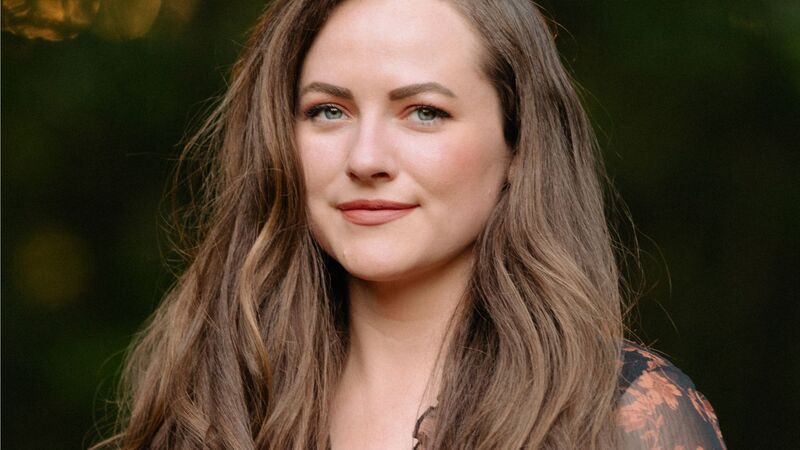You are viewing your 1 free article this month. Login to read more articles.
Claire Messud on the perks of being an outsider
Nora Eldridge is angry. She is fuming, she is outraged, she is 38 years old, single, alone, reliable, quiet and on the verge of disappearing. She is the woman upstairs.
The Woman Upstairs is Claire Messud’s fifth novel and one she wanted to write in part because, “as a reader I have always enjoyed ‘ranty’ books but they are all written by men. So I went into this thinking: ‘Why aren’t there female characters that are angry, who feel like outsiders, who feel left out and actually say so?’
“Nora says at one point ‘it’s unseemly’ for women to be angry, there are many things we’re allowed to be but there are certain types of unattractive we’re not supposed to be. Years ago I worked in a newspaper office and there were men that would have fits of temper and it was just accepted that that’s who they were and everyone would laugh about it, but if a woman got upset or angry, something wasn’t right, she was hysterical or a little unhinged. It didn’t have the same sort of connotation at all.
Messud sees Nora’s anger and situation as part of a wider feminist conversation. Although she did not set out to write a novel about what it means to be single, she feels “as though there is some sort of feminist debate afoot after some years of it not being so much at the forefront. Of course, so many things are so much better, but it would be complacent to say everything’s sorted out. I don’t think that’s true.
“There’s no question that it’s very different to 30 or 40 years ago, but I think if a woman is single and chooses not to have children there are still tacit assumptions that people make. People do get lumped into categories or types. But that’s true of people that get married and have children too, it’s just a different set of types.”
Suppressed passions
A primary school teacher in Cambridge, Massachusetts, Nora’s solitary life changes dramatically with the arrival of Reza Shahid in her classroom and, in turn, the arrival of his parents—Skandar, a dashing Lebanese man, and his beautifully exotic Italian wife Sirena—in her heart. But Nora is her own worst enemy, and as she integrates herself more and more into the Shahid family her suppressed passions slowly start to come out as obsessions.
“One of the other things that went into this book is the extent to which experiences are subjective, to the point that we control and create what happens for ourselves. If you live in a family or have five roommates, there’s some sort of reality check, but when you live alone, there’s a lot more leeway for your fantasy life to be more and more a part of your everyday life. I have always been interested in that relationship between what happens in our head and what happens in the world.
“For Nora, the richness of her inner life is actually her undoing in some parts, because so many fascinating things happen in her mind. Her life as an artist, as a mother, as a lover, they can all be worked out in her mind when the workings out in the real world are much less satisfactory.
“I’ve always been fascinated by people who have the power and the charisma to make what’s in their head real—architects or entrepreneurs. For most of us, there’s a much less direct relation between the inside and the outside, but Nora is caught in a bind between feeling special and destined for something and some other terrible insecurity, which means she’s never really put herself first. She has never had the will to follow through on things, because she’s afraid she’ll lose everything if she puts it out in the world, so a secret obsession is the only safe place she can indulge her passions.”
Feeling displaced
Messud’s début novel, When the World was Steady was nominated for the PEN/Faulkner Award. She followed it up with The Last Life and The Hunters, and in 2006 her fourth novel The Emperor’s Children was longlisted for the Man Booker Prize.
Similarly to The Women Upstairs, the lives of the three main characters in The Emperor’s Children—the Brown-educated, New York-living friends Marina Thwaite, Danielle Minkoff and Julian Clarke—are thrown into disarray with the arrival of two outsiders, Ludovic, a competitive Australian writer, and the slightly less exotic Frederick “Bootie” Tubb.
Messud explains that she has “always been interested in displacement and this idea of one’s different selves. Sirena would look back on her year in Boston a few years later and it would seem such a separate part of her actual life. For her and who she was in that time, what that time represented is so different to what it represented to Nora. Anytime you move anybody anywhere you’re going to get some sort of conflict, and conflict is of course essential to telling a story. It’s that question of what sets us free, what is troubling us, what is exciting for us?”
Towards the end of the book Nora slowly starts to increase her awareness of the real world, but despite having real-world friends she could reach out to, she chooses to deal with many of her newfound revelations alone. Messud says she “always wondered if I struggled more than other people with our fundamental aloneness . . . nobody ever seemed as bothered by it as I was when I was growing up—the fact that you can be with your best friend, you can be with your family, you can be with your lover but in the end you will die alone. One of the abiding, central tenets of the human condition is our aloneness, which sometimes manifests itself as loneliness and sometimes as the opposite, the freedom of being an individual that can act.
"The way different people negotiate being an individual self in a pack of humanity is endlessly interesting to me, and of course the great discovery a little bit further down the line (in life), is that whatever choice you make, you can keep choosing. Your fate is not sealed, and that is a relief.”
The Woman Upstairs by Claire Messud is published by Virago














